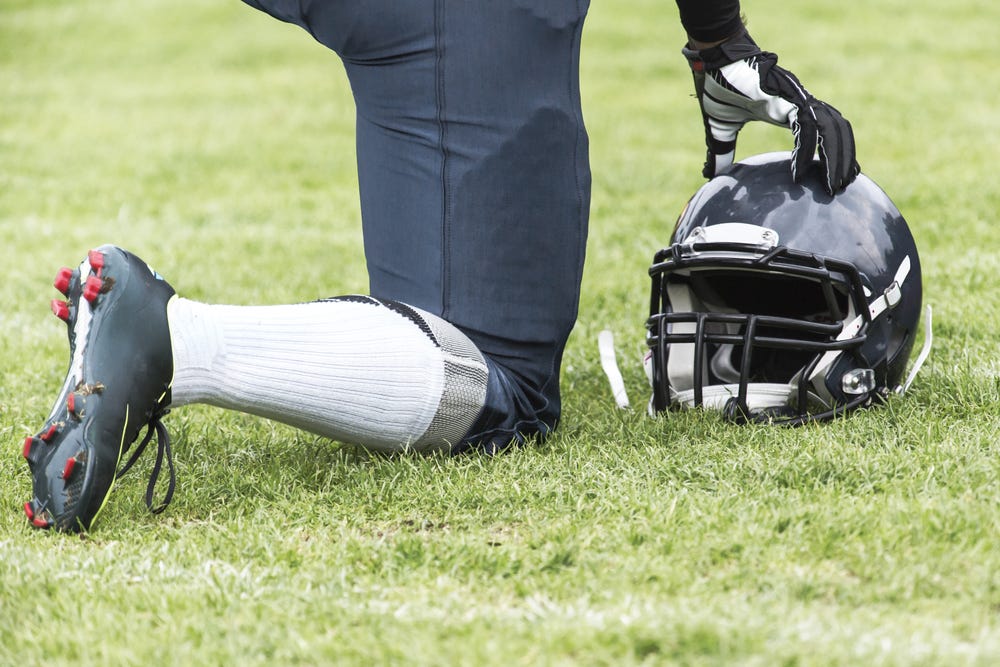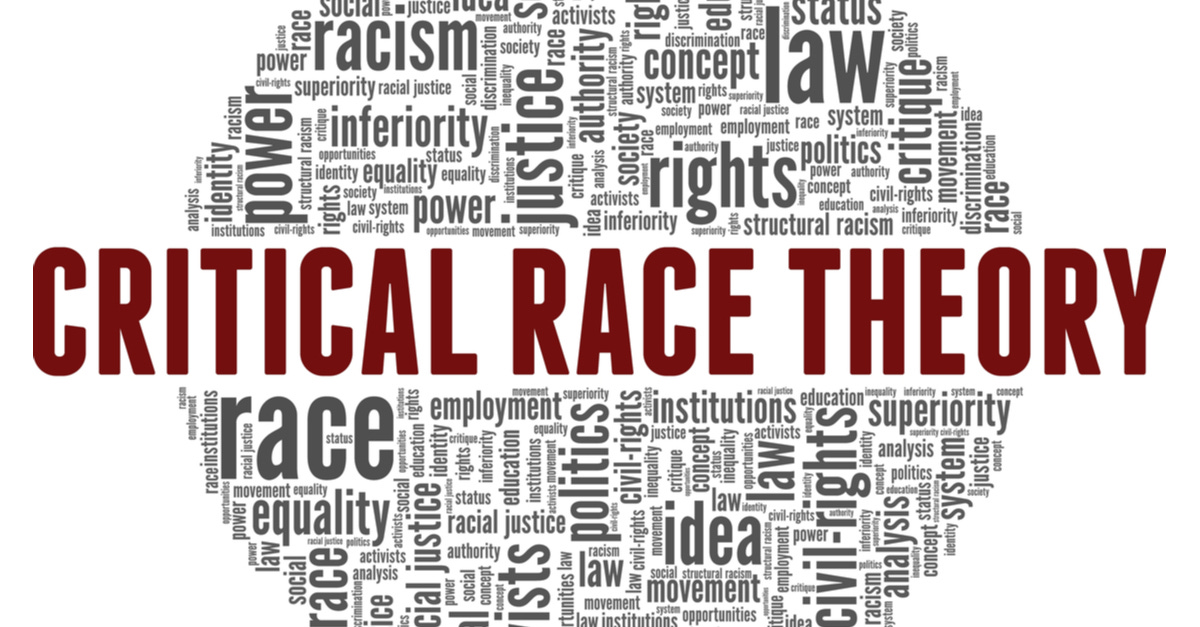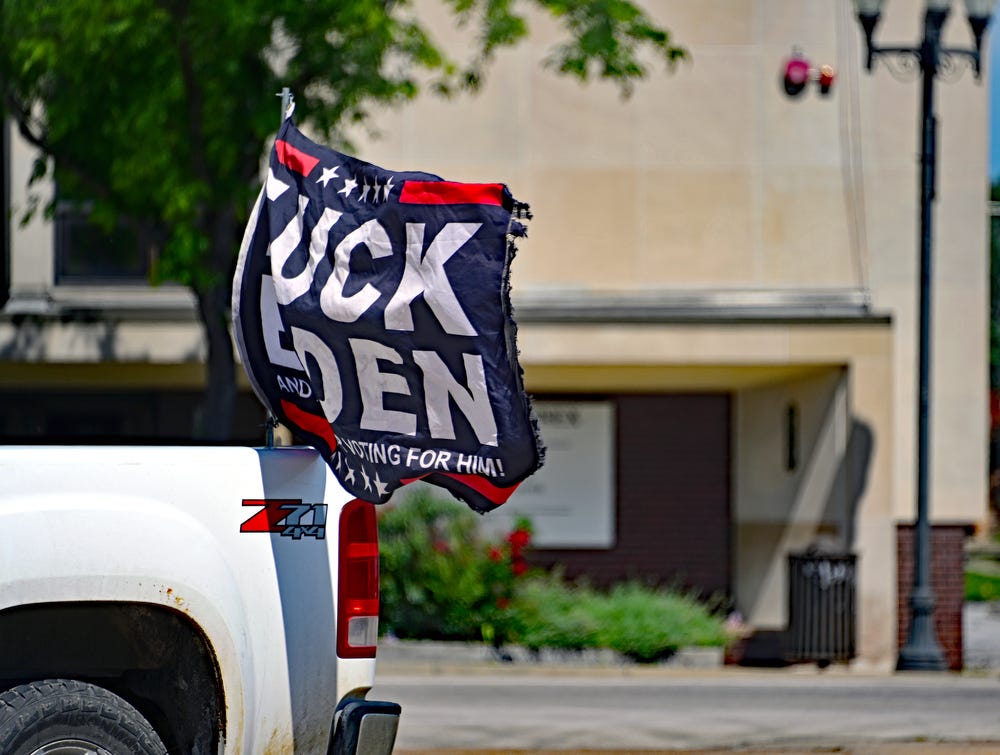E-Pluribus | July 19, 2021
Stop censorship in sports, why CRT matters, and a judge orders the removal of "obscene" Biden signs.
A round up of the latest and best writing and musings on the rise of illiberalism in the public discourse:
David Bernstein: Stop Censorship in Sports
Many assume that America’s pastimes became politicized when athletes began taking a knee to protest police brutality, but sports have been used for political purposes for over a decade now, particularly through the use of patriotic displays to promote the U.S. military (often paid for by taxpayers). Now political and culture-war protests by athletes and fans occur regularly at sporting events here and abroad. At Persuasion, David Bernstein highlights some recent examples and contends that we should not seek to censor this type of expression.
So, rather than attempting to extricate itself from politics, sports should adopt a laissez-faire posture: Let everyone—owners, players, and fans—make political statements at sports matches. That way, no one in authority will have to worry about the charge of hypocrisy, which often follows the myriad decisions about which political acts to allow and which ones to ban. In so doing, sports can set the tone for the rest of society and, indeed, the rest of the world. Amid illiberal trends and a censorious culture on both sides of the political spectrum, we desperately need a reminder of why free speech matters.
Everyone is watching how the professional sports leagues address issues of freedom of speech. If they stifle speech, it may be used as justification to suppress speech in other sectors. If they welcome dissent, it will set the tone for other institutions. Sports team owners, coaches, and players have the opportunity to uphold the value of free speech for society at large by not imposing onerous restrictions.
There are those who will argue that owners, players, and fans do not have an unmitigated right to free speech. Professional sports is, they say, private enterprise, and private enterprise has the right to restrict what employees say and customers do on their premises. True enough. For much of American history, the battle over free speech was primarily a legal and political one to prevent the government from squelching the free speech of private citizens and groups. Think McCarthy era, when the power of government was used to suppress free speech and political activity.
But today’s battle over free speech is largely cultural, not legal. The real question is, what kind of culture do we want—one that allows people to express themselves, or one that restricts people from speaking their minds? If we want a more open society, we must stand up for free expression in private institutions—whether the threat is from authoritarian governments that seek to shield themselves from criticism of their human rights records, or from brand-conscious sports teams that don’t want to alienate their fanbase.
Read more here.
Ilana Redstone: A Straightforward Primer On Critical Race Theory (and Why It Matters)
Everyone seems to be missing at least part of the picture in the debate about Critical Race Theory (CRT). Ilana Redstone, a professor of sociology at the University of Illinois at Urbana-Champaign, provides an overview of CRT and argues that, while useful, it has its blind-spots, particularly when it comes to fostering a more nuanced examination of society’s problems. As such, she provides some advice for every side and institution involved in this debate on how best to grapple with this school of thought.
Welcoming a diversity of perspectives, fostering open communication, broadening discourse, and even democracy itself, are all incompatible with having a default assumption of racism or ignorance when it comes to some of our most difficult social problems.
So what’s the path forward? Here are a few suggestions:
To conservatives: Stop trying to enact legislative bans on CRT. Such bans are censorious, probably unconstitutional, and, simply put, will do nothing to solve the underlying problem.
To progressives: Stop talking about CRT and, more importantly, its related ideas as though objections to it and concerns about it are all driven by a denial of systemic racism or an unwillingness to acknowledge the reality of slavery. As I’ve pointed out here, this is to grossly miss the point. The importance of this point stands even if the loudest critics are not raising the concerns I’ve outlined here.
To the mainstream media: See advice for progressives, above.
To schools and workplaces: Critical Race Theory is a social science theory—a tool to understand the world around us. As a theory, its related ideas about race, identity, power, and fairness constitute one possible way to see the world. As with any social science theory, but particularly one this controversial, its ideas should be placed in context. Placing the ideas in context requires presenting contrasting viewpoints—for instance, perspectives that do not automatically assert that racialized explanations and solutions should be the primary lens for viewing the world. Importantly, these contrasting viewpoints are to be presented on moral footing that’s equal to CRT’s.
The upshot is this: The problem is that CRT and its related ideas form a closed system. It’s a perspective that leaves no space for anyone, no matter how well-intentioned, to see the world differently. When presented as the singular valid worldview, it isn’t a productive way to engage with students, groups, or with one another.
Read it all at Forbes.
Elizabeth Nolan Brown: Judge Says 'Fuck Biden' Signs Are Obscenity and Orders Their Removal
Last week, a New Jersey municipal court judge ordered a Roselle Park woman to remove flags from her yard that read “Fuck Biden,” arguing that the displays violate a municipal obscenity ordinance. The problem, as Elizabeth Nolan Brown argues, is that the judge’s interpretation of the city’s ordinance runs afoul of U.S. Supreme Court precedent.
It is true that not all speech is protected by the First Amendment, and obscenity is considered an exception. But obscenity cannot be defined simply as "anything that offends the sensibilities of government officials," which seems to be what the judge is going by here.
[ . . . ]
This all runs contrary to what the U.S. Supreme Court has previously said on the matter.In Cohen v. California, the Court held that a jacket emblazoned with "Fuck the Draft" was OK, even when worn inside a courthouse, and its wearer could not be convicted of disturbing the peace.
[ . . . ]
"Cohen v. California was actually a closer call, because it involved wearing a 'Fuck the Draft' jacket into a public courthouse, where the government has some extra latitude to set rules of decorum. The sign in this case was on the woman's own property," points out the Cato Institute's Julian Sanchez, noting on Twitter that it is "one of the Supreme Court's most famous First Amendment cases" and that courts have recognized the right to much more offensive forms of speech, including cross burning, swastika banners, signs saying "God Hates Fags," and yelling "fucking pigs" at police officers.
"Particularly depressing," he adds, "to see an actual judge engaging in the kind of hand-wavey First Amendment pseudo-analysis I associate with Twitter trolls: 'Well, free speech isn't an ABSOLUTE right, therefore let's just assume this instance I don't like is one of the exceptions…'"
Read more at Reason.
Around Twitter
The city of Anaheim nudges a private venue to cancel an America First event:
Thomas Chatterton Williams on the difference between right and left Twitter:
A recent NPR article is being criticized for a new definition for “misinformation:”












